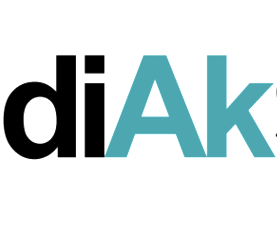www.badische-zeitung.de/kultur-sonstige/die-buerokratisierung-des-boesen–134354934.html
Monat: März 2017
Can Jews and Arabs Be True Political Partners in Israel?
Yaniv Sagee, ‚Opinion‘, Ha’aretz, Feb 27, 2017
The only way to create an alternative to push back against 50 years of occupation and mounting inequalities is for the Zionist and Palestinian-Arab left to form a real partnership.
In four months, we will mark 50 years of Israel’s occupation of ‚the territories.‘ Fifty years, during which the State of Israel has changed from top to bottom.
From being a welfare state fulfilling the founding vision – both of a national homeland for the Jewish people and of an egalitarian state for the benefit of all its citizens – Israel has transformed into one of the worst of Western states in terms of social gaps. A state that discriminates against its Arab citizens and is incapable of connecting with world Jewry.
From a “pursuer of peace,” we have become a state that “manages the conflict” through wars and operations where we kill and are killed, because we have become convinced that “there is no partner” for peace. Our actions are directed by the vision of the Prime Minister who told us last year, “We shall forever live by the sword.”
read the whole article as a PDF here
—
Yaniv Sagee is the Executive Director of Givat Haviva. A member of Kibbutz Ein Hashofet, he was previously a teacher, school principal, director of the Hashomer Hatzair youth movement and chairman of the National Council for Youth Movements in Israel.
Renewed Tensions at Jerusalem’s Holy Esplanade
Please find below a link to my recent oped in the Times of Israel which describes the mounting tensions at Jerusalem’s Holy Esplanade (Temple Mount / Haram al-Sharif).
Renewed Tensions at Jerusalem’s Holy Esplanade
The tensions are particularly worrying as we are a month before Passover, two months before Ramadan and three months before commemorating 50 years to the 1967 War. And because they take place with the Obama-Trump transition and its uncertainties (West Bank annexation? Two states?) as backdrop.
Israel, Jordan, the Palestinian leadership and the US can and should act to quell the tensions. This will allow them to focus on the bigger political issues at hand.
Ofer Zalzberg, Times of Israel, 14 March
[Von Ofer Zalzberg ist eine Studie der International Crisis Group zur Zukunft von Jerusalems ‚Heiliger Esplanade‘ (‚Holy Basin‘) als Heft 1/2016 von israel&palästina erschienen.]
Bernie Sanders und die friedenspolitische Alternative in den USA und Israel
Nach dem Wahlsieg Trumps jubelte die israelische Rechte in der Hoffnung auf Unterstützung durch den neuen Präsidenten. Doch die J Street – Konferenz in der vergangenen Woche hat gezeigt, dass sich auch die Gegenkräfte in beiden Ländern formieren und eine friedenspolitische Alternative präsentieren. Als prominenter Sprecher erläuterte Bernie Sanders, warum es notwendig ist, dass die USA sich aus der Verbundenheit mit Israel heraus um ein Ende der Besatzung und eine Friedensregelung bemühen. Am Rande der Konferenz traf Sanders zudem den Vorsitzenden der Gemeinsamen Liste und Knesset-Mitglied Ayman Odeh, der über die Situation der palästinensischen Minderheit in Israel und die Möglichkeiten einer gleichberechtigten, demokratischen und friedlichen Zukunft Israels sprach. Die Rede von Sanders finden Sie hier.
Das Kalenderblatt im März 2017
An dieser Stelle präsentieren wir zu jedem Monatsanfang ein neues Kalenderblatt aus dem diAk-Kalender für das Jahr 2017 (Erschienen als Ausgabe IV/2016 ) – mit vielen Photos und Geschichten zu den Personen und Projekten hinter der Initiative Combatants for Peace.
Der März widmet sich der Jerusalem-Jericho-Gruppe innerhalb der Combatants.


